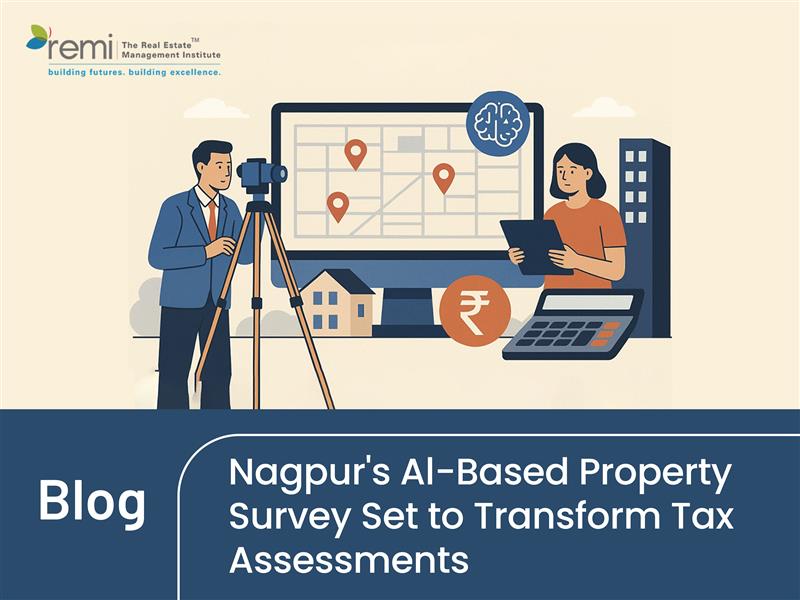The NMC is preparing to embark on a major refresh of its property records, using artificial intelligence (AI) to support a city-wide survey after nearly nine years. According to the article, the civic body’s last full survey was in 2016, despite government norms calling for updating every five years.
What’s Changing in the Assessment Approach
Under the current assessment framework, NMC calculates property tax by determining the taxable value of land and building on parameters such as latitude-longitude coordinates, construction type and age, and the nature of use. But rapid urban development and the frequency of modifications in properties across Nagpur have made manual updating slow and outdated.
With the new initiative, the plan is to roll out the AI-based survey across all ten zones of the city, combining AI-driven data mapping with traditional door-to-door inspections for verification. While open plots will be excluded, all built-up properties will be comprehensively surveyed.
Officials believe this integration of AI and physical checks will capture real-time changes in property profiles, leading to more timely tax reassessments. Because property tax is the civic body’s largest source of revenue, this exercise could add significantly to annual income. It will also help recover long-pending arrears, which currently exceed Rs 900 crore (excluding penal interest).
Why It Matters
From a civic-governance perspective, the initiative marks a major step toward modernising property-tax administration. This helps in three key ways:
1. Fairness – Property owners who have extended or changed usage of their premises but have not reflected this in tax records are now more likely to be captured, so tax assessments become more equitable.
2. Efficiency – Timely, accurate data means the municipality won’t rely on outdated information, which in turn means tax calculations better reflect current realities.
3. Revenue-optimisation – By plugging loopholes (unregistered constructions, changes in use, etc.), the civic body stands to enhance its revenue base and reduce large arrears.
Looking Ahead: What to Watch
• The full city-wide rollout is expected to begin early next year, following the completion of tendering and technical framework processes.
• The approach could serve as a model for other municipal corporations across India seeking to harness technology for property-tax assessment and enforcement.
• For property owners, it may mean an increased chance that their property will be re-evaluated—so staying updated with permissible usage, building plans and tax status is important.
• Transparency and diligence in data handling will be critical, especially as AI models attempt to map built-up properties, change of use, and structural modifications.
As Nagpur and other cities adopt technology to capture real-time property changes, understanding the fundamentals of property valuation and compliance is essential. For property owners and real estate professionals, knowing how structural changes and usage alterations impact taxable value is critical to avoid reassessment surprises. Stay ahead of the curve and master the principles of property worth and regulatory adherence with REMI’s specialized programs, such as the Real Estate Valuation Program.

